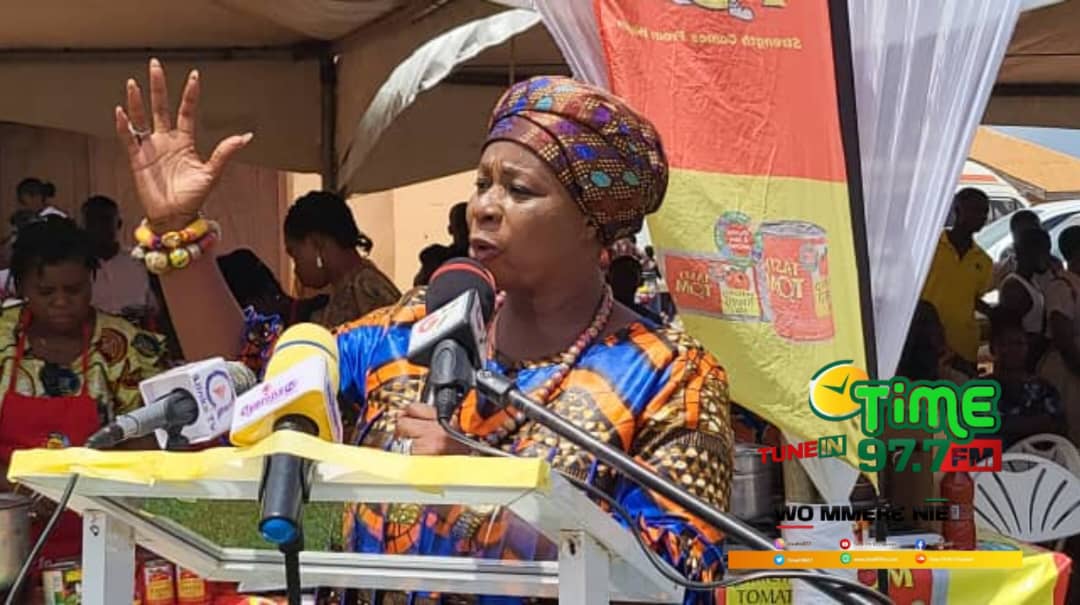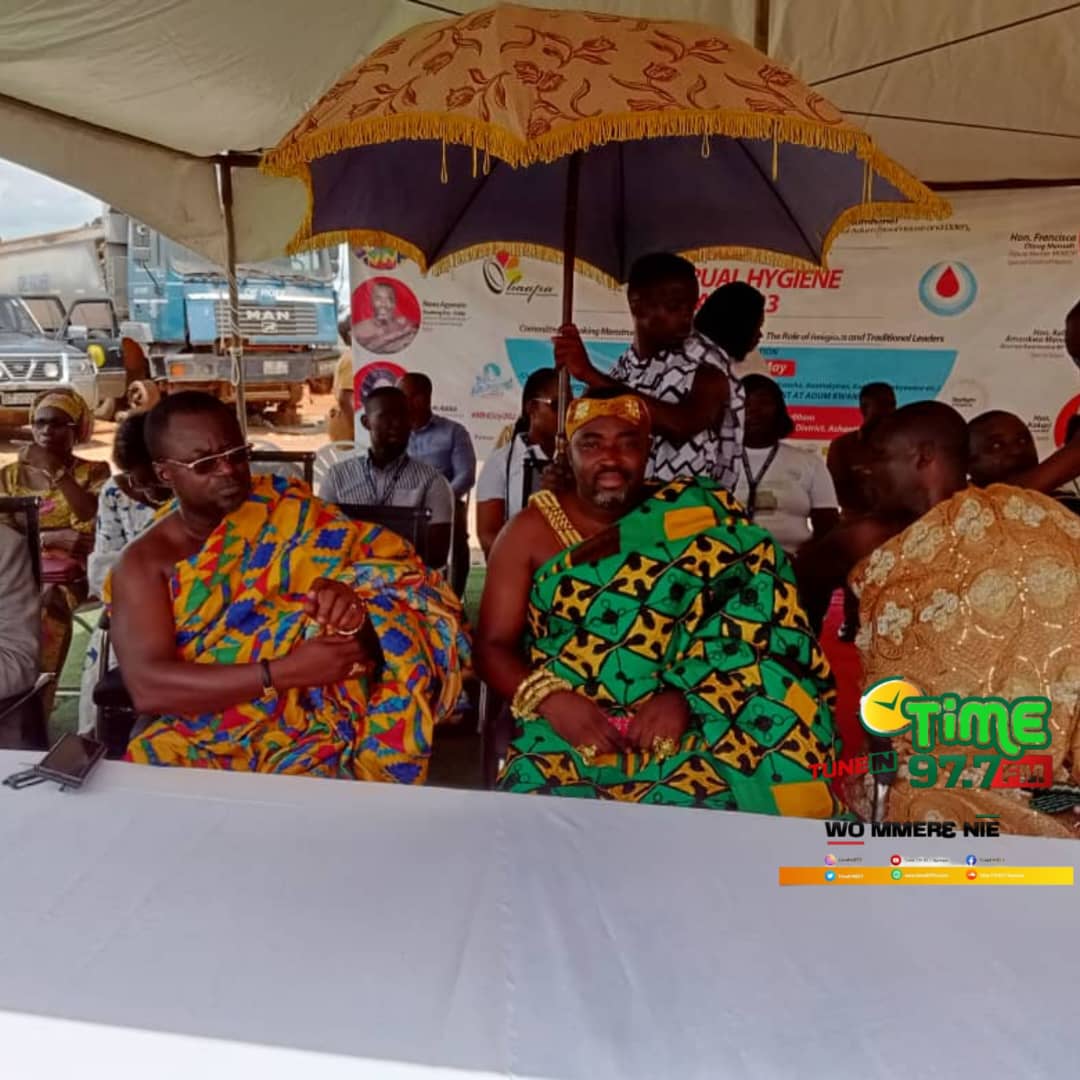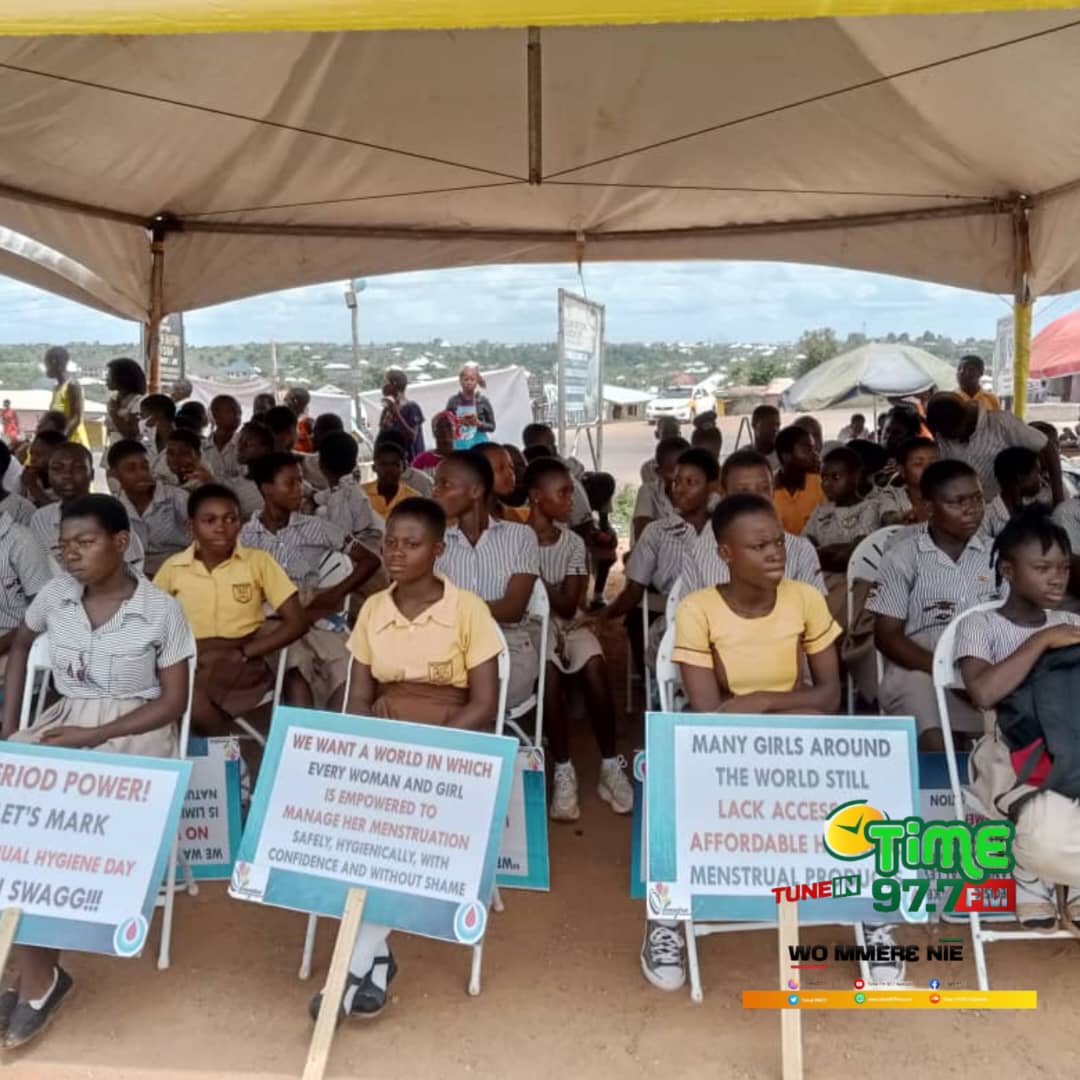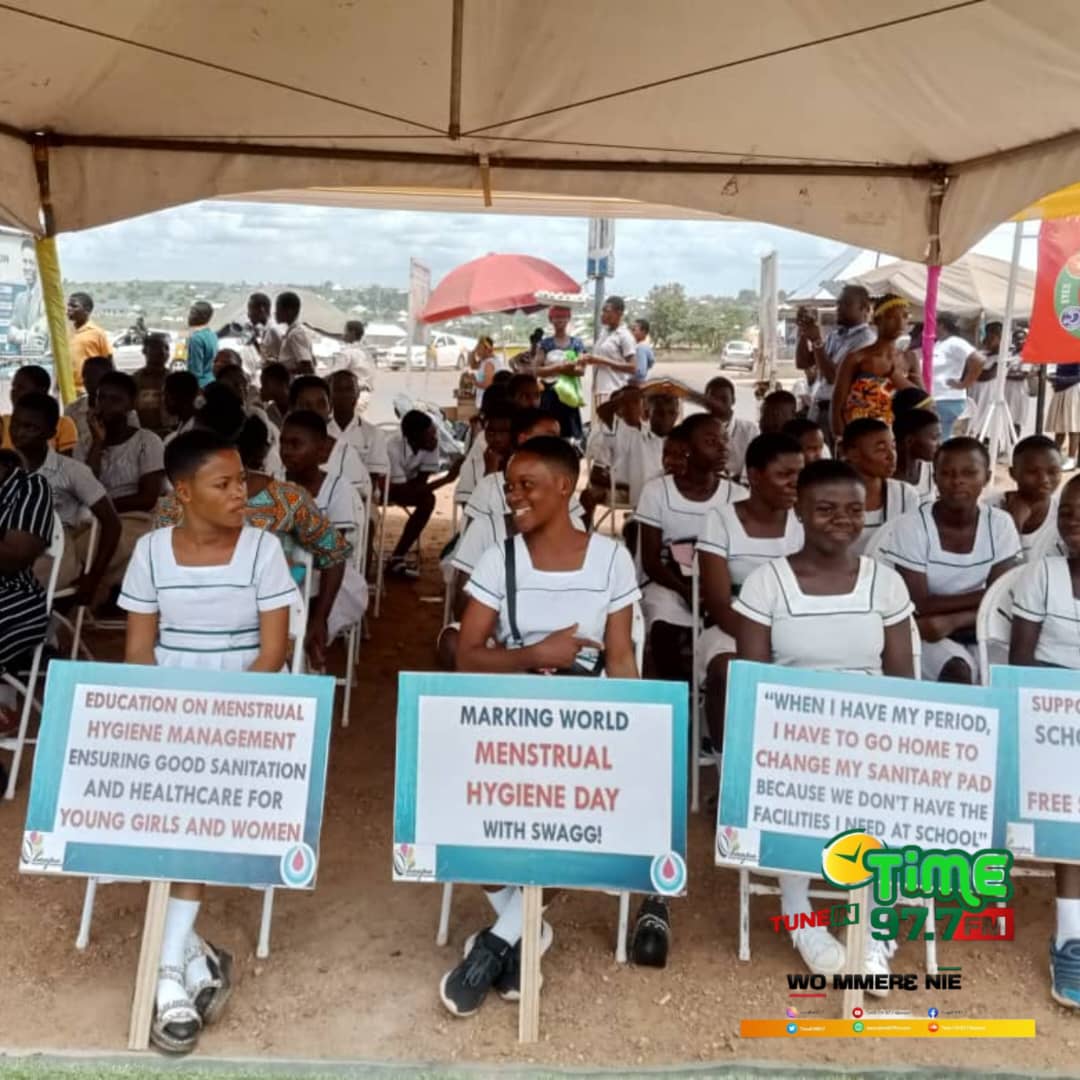
Obaapa Development Foundation Celebrates World Menstrual Hygiene Day2 min read

Obaapa Development Foundation an advocacy group, has celebrated World Hygiene Day with pupils at Kwanwoma in the Ashanti Region.

CEO of Obaapa Development Foundation, Nana Hemaa Adjoa Awindor
The weeklong celebration which was climaxed with a grand durbar was under the theme “Committed To Making Menstruation A Normal Fact Of Life By 2030 – The Role Of Religious And Traditional Leaders”.
The durbar was attended by chiefs, queen mothers, government officials, teachers and pupils.

In her speech, the CEO of Obaapa Development Foundation, Nana Hemaa Adjoa Awindor placed much emphasis on the importance of menstrual hygiene.
She said menstruation is an integral component of adolescents which needs premium attention.
Nana Hemaa Adjoa Awindor reminded parents to see this period of their daughters as a critical moment and should not be down played.

“Parents, let’s be reminded that we hold it as a responsibility to guide our girl child when they reach this stage of life”, she stressed.
She noted that the Foundation set the day to educate the girl child on the importance of menstrual hygiene and teenage pregnancy.
Nana Hemaa Adjoa Awindor revealed that the program shall be made an annual event for the other towns in the area to benefit.

The Foundation CEO noted that the group has earlier been to some schools in the area to interact with the pupils.
The Deputy Minister for Gender and Children Affairs, Hon Francisca Oteng Mensah who spoke on behalf of her boss said menstruation is a natural and vital moment in a woman’s life.

She noted that it’s about time menstrual hygiene management was done with dignity to dispel the myth surrounding menstruation.
The Minister recounted that most women go through a lot of challenges including lack of financial support to buy pads.

The DCE for Atwima Kwanwoma, Hon Prince Karikari urged all Ghanaians to be interactive with menstrual hygiene issues to dymistify the isolation it comes with.
Health facilitators used the occasion to advise parents to bring their girl child to the hospital when their wards bleed profusely during their period.
He explained that this helps health personnel to detect quickly any anomaly.


















